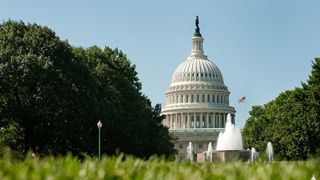House E&C Boosts Illegal Robocall Fines to $10,000 Per Violation

The House Energy & Commerce Committee has voted unanimously to dramatically raise the per-violation fines for illegal robocalls. That was part of an omnibus bill, the "Stopping Bad Robocalls Act," which also passed unanimously (48-0)* as part of a markup for a couple dozen bills.
The bill, actually a combination of five bills, had passed unanimously out of the Communications Subcommittee June 25.
Rep. Anna Eshoo (D-Calif.) said she expected it would be the most popular bill the committee passed and urged passage in the full House ASAP.
Fines in the bill were raised from $1,500 per violation to $10,000 per. That came in an amendment co-sponsored by Reps. Bill Flores (R-Texas) and Jerry McNerney (D-Fla.). They said that might actually get robocall scammers to change their behavior rather than treat the fine as the cost of doing business.
Also approved was an amendment that creates a Hospital Robocall Protection Group within the FCC to concentrate on the scourge of scam calls to hospital staff and patients, which threaten both life and health as well as personal health information.
The underlying bill will help curb the estimated 48 billion robocalls Americans get each year, according to Communications Subcommittee chairman Bob Latta (R-Ohio). The builds on the FCC's action last month to essentially mandate robocall blocking technology, said Latta.
The bill allows for consumers to know which calls are being blocked and for increased information sharing between phone companies and the FCC to better trace unwanted robocalls to their source. It says the bill will protect consumers from bad actors while still preserving their access to life-saving information and other important data, he said.
Broadcasting & Cable Newsletter
The smarter way to stay on top of broadcasting and cable industry. Sign up below
Rep. Mike Doyle (D-PA.) said that legitimate alerts and reminders represent only about 20% of the billions of robocall calls received each year.
House E&C chairman Frank Pallone (D-N.J.) called the bill a great bipartisan effort.
What actually passed Wednesday (July 17) was a managers' amendment that included some technical tweaks (as well as the two amendments to that managers' amendment). Pallone said it also includes language on legitimate calls that get blocked because of technology issues. The bill now has transparency provisions as well as options for redress for calls that should not have been blocked.
* The vote was originally recorded as 47-0, then immediately changed to 49-0, then changed again to 48-0 in an email notice an hour or so later, where it stood at deadline.
Contributing editor John Eggerton has been an editor and/or writer on media regulation, legislation and policy for over four decades, including covering the FCC, FTC, Congress, the major media trade associations, and the federal courts. In addition to Multichannel News and Broadcasting + Cable, his work has appeared in Radio World, TV Technology, TV Fax, This Week in Consumer Electronics, Variety and the Encyclopedia Britannica.

